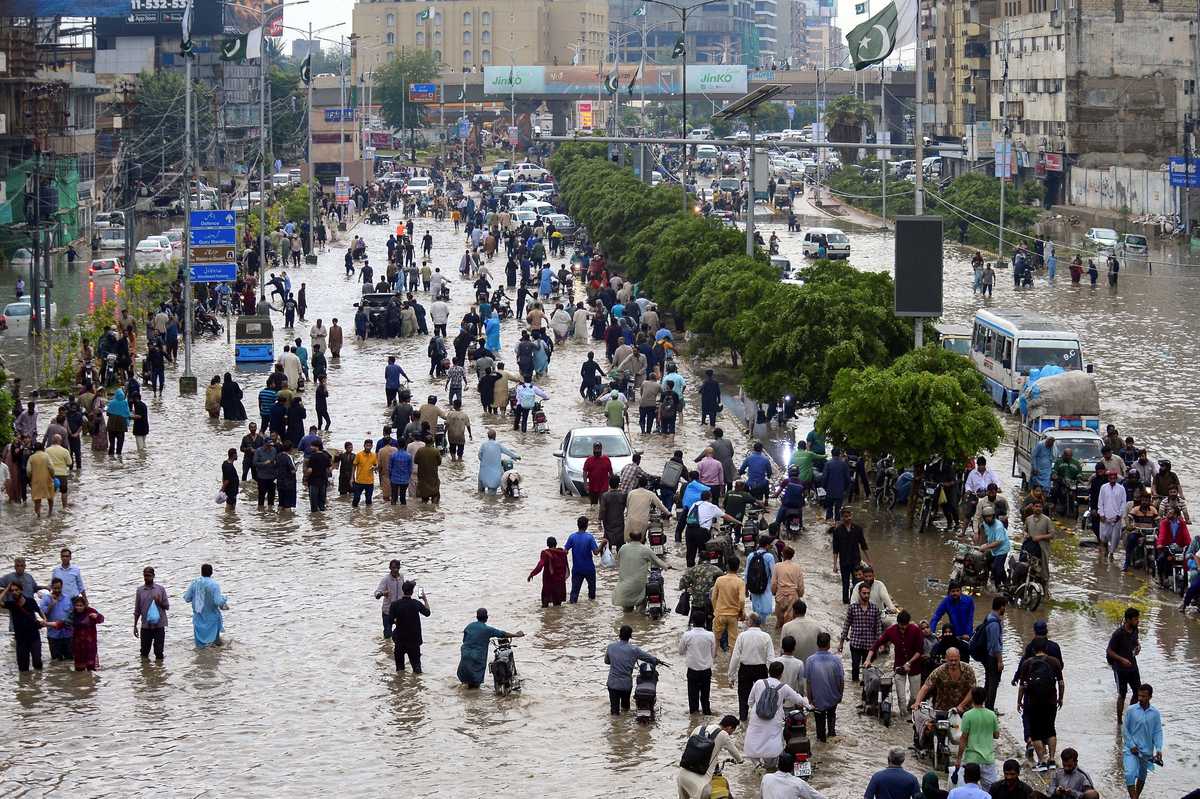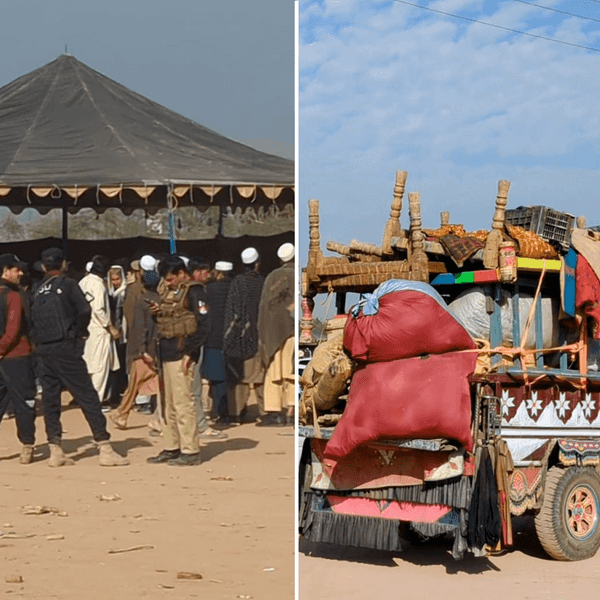Karachi knew the rains were coming. Why was no one prepared?
Forecasts often stop at the level of press releases or TV tickers, while city authorities, schools, and employers delay decisions until chaos unfolds
Akhtiar Khokhar
Special Correspondent
Akhtiar Khokhar is a one of the karachi-based senior journalists. He has been doing investigative reporting for Pakistan's mainstream print and electronic media for the past 33 years, especially highlighting corruption and bad governance in government institutions and development projects.

Sidrah Roghay
Senior Producer
Sidrah Roghay is a storyteller at heart, with over a decade of experience in newsrooms across Pakistan, the US, and Turkey

People wade through a flooded street after heavy rainfall in Karachi on August 19, 2025.
AFP
Karachi, Pakistan’s largest city and financial hub, was paralyzed after a spell of monsoon rain on Tuesday. Roads turned into rivers, traffic froze for hours, power systems failed — and at least 17 people lost their lives.
Yet, the very next day, the provincial government announced a public holiday to keep people indoors and off the streets. For many, the timing raised an obvious question: why only after the damage was done?
The tragedy is that the rainfall was not a surprise. The Pakistan Meteorological Department had already issued warnings, and even global weather apps had predicted heavy showers with startling accuracy. But in Karachi, forecasts rarely translate into preventive action.
Who's job is it anyway?
When Nukta contacted Syed Salman Shah, director general of the Provincial Disaster Management Authority (PDMA) Sindh, he said the authority regularly issues updates to the media about weather, flood situations, and safety precautions, and also shares information on social media.
On the question of why the government did not declare a holiday on August 19, when most of the rain-related havoc unfolded, he explained that the Meteorological Department’s advisory had forecast 50 to 60 mm of rainfall, while nearly 200 mm fell instead - a scale the government could not have foreseen.
Still, he acknowledged that the Sindh Information Department and PDMA administration need a permanent system for formal advisories and regular media briefings to help citizens prepare for emergencies.
Chief Minister Murad Ali Shah, meanwhile, turned his frustration toward citizens themselves. “The government had declared a public holiday so citizens would stay home, yet people still came out,” he said. “Is this a public holiday?”
But that raises its own question: whose job is it to ensure advisories are taken seriously? Should there be strict fines, education campaigns, or even curfews? After all, people's lives depend on it.
This gap between warnings and preparedness leaves millions vulnerable. Forecasts often stop at the level of press releases or TV tickers, while the crucial link — city authorities, schools, and employers — delay decisions until chaos unfolds.
Are workplaces safe?
And increasingly, citizens are pointing fingers not just at the government, but also at corporations. A wave of posts on LinkedIn after the flooding criticized workplaces for ignoring warnings and forcing employees to report to offices despite the risks.
“Friends were saving their furniture from urban flooding while still worrying about how to report for work. WFH is not a perk, it’s a necessity,” wrote Ali Raza.
Another professional, Ayesha Azhar, noted: “In 8 plus years of experience, I have never seen managers or directors paying heed to weather warnings. Employees drag themselves to work, and then worry about how going home late would look for their performance. Corporates don’t care about safety.”
Areeba Ali, senior human resource manager at the Aga Khan University Hospital, told Nukta: "So if I be blunt, a lot of companies still equate bodies and seats with commitment. So even with clear weather warnings, the reflex is to call people in.
"I believe most knowledge work runs fine remotely if leaders can set clear deliverables ... or just simple tracking. So yeah, flexibility in this case [sic rains] should be treated like an infrastructure and not as a perk, and performance should be judged only by outcomes and not through physical presence."
The bigger picture resonates across many vulnerable megacities: early warnings are no longer the problem. The challenge is whether institutions — governments, businesses, and communities — actually act on them before disaster strikes.







Comments
See what people are discussing